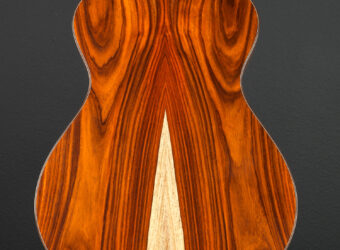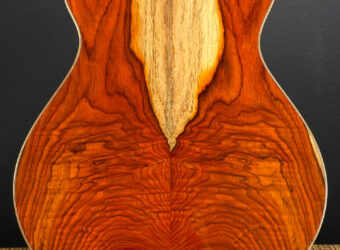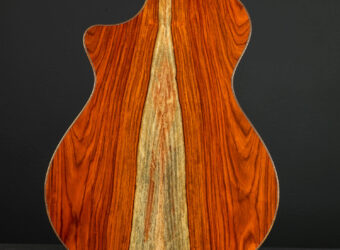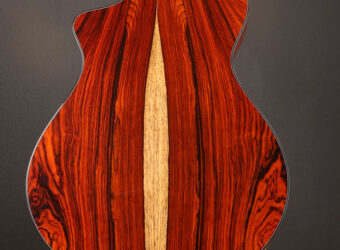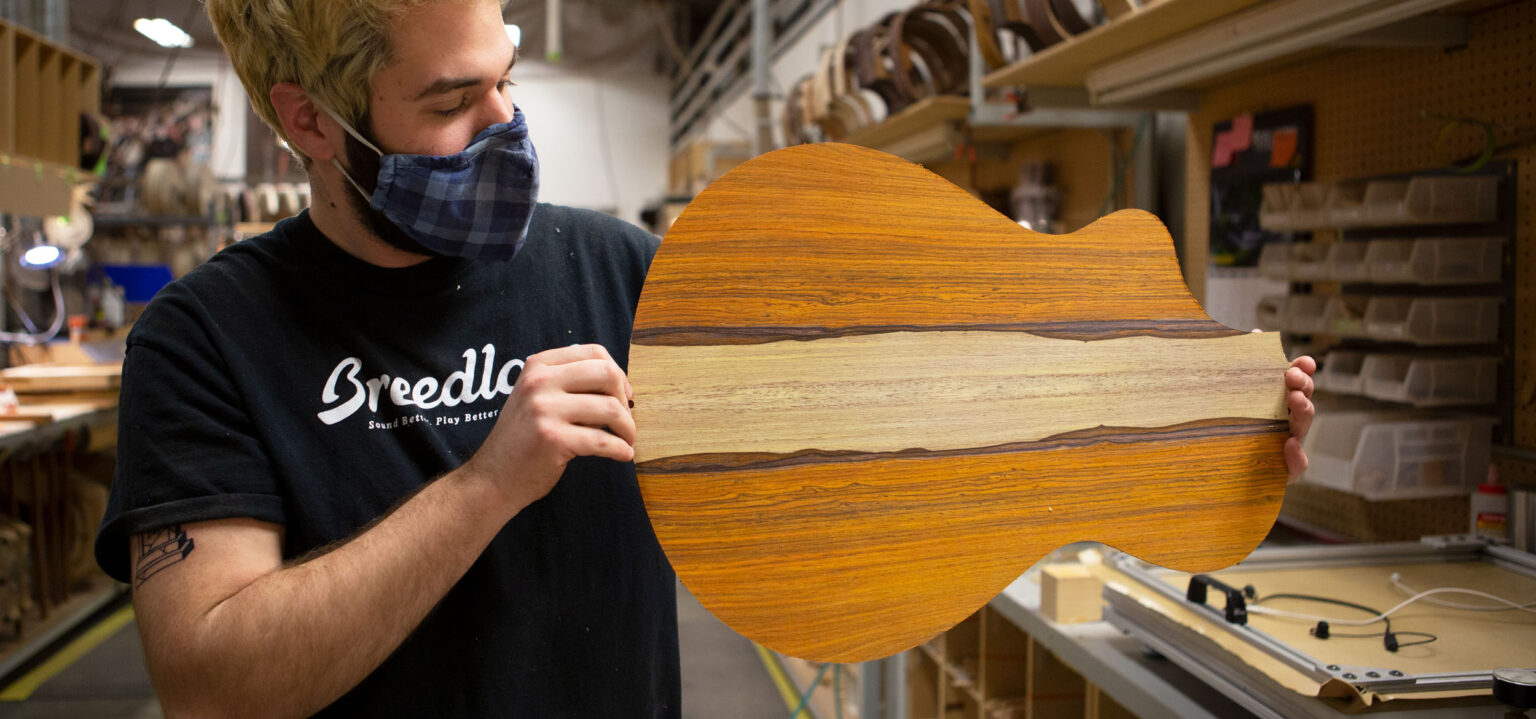
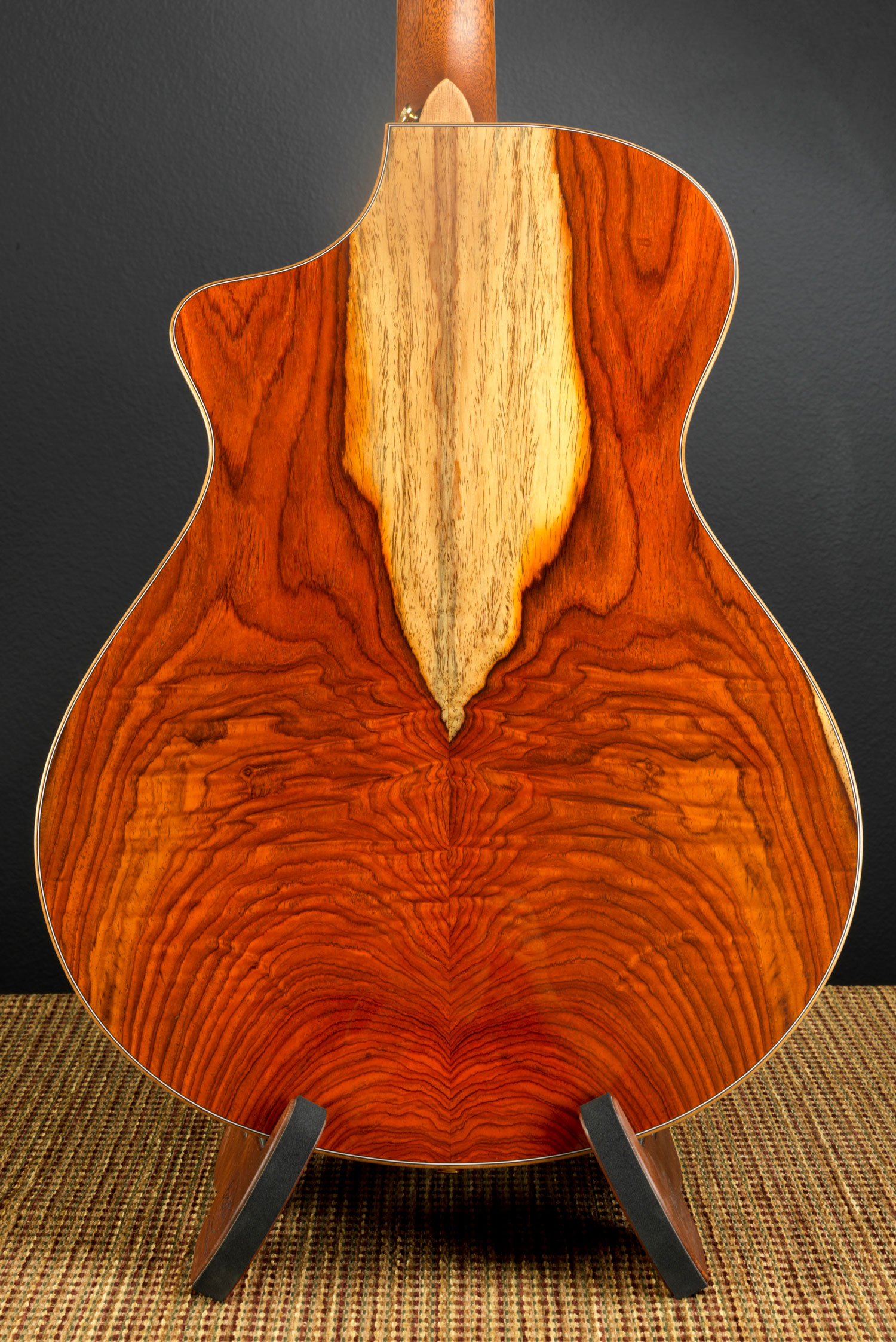 A Divisive Tonewood
A Divisive Tonewood
Cocobolo remains a tonewood shrouded in mystery and debate despite emerging as a staple in acoustic backs and sides over the past decades. Spend a few minutes (or hours) searching the web, and you’ll find no shortage of full-throated pontifications for all the reasons coco is the absolute best tonewood, surpassing even the great Brazilian rosewood in tone and clarity. You’ll also find nearly as many exhortations declaring it an over-rated, tone killing, high-priced, slab of marketing malarky that turns otherwise wonderful guitars into anvils. Some claim it’s only good for smaller bodied instruments; other’s laud it’s voluminous performance when anchoring a Jumbo.
Scattered among the hyperbole and rancor, you’ll discover genuinely curious players casting about online communities to try and figure out if a cocobolo guitar is right for them. These searching souls can be understandably overwhelmed by conflicting information.
Cocobolo Facts
No one can tell you if a cocobolo guitar is the right choice for you—as tone and feel are inherently subjective. We can, however, break down some of the properties of tonewood and explain how this wood became so misunderstood and polarizing. Let’s start with some quantifiable aspects of coco.
Cocobolo, scientific name Dalbergia retusa, comes from the more arid mountain ranges of Central America—from Panama to southwestern Mexico. Being in the Dalbergia family, it’s closely related to both Brazilian and East Indian rosewoods. Cocobolo trees are capable of stretching up to 80 feet in height but rarely exceed two feet in diameter. The wood’s dynamic grain patters, rich hues (ranging from brown to orange to red to yellow,) and high oil content have long made it a popular for intricate inlay work. Its natural water resistance has also made it a favorite for knife handles, pistol grips, and duck calls.
In addition to being exceptionally oily, cocobolo is also one of the world’s densest tonewoods. At a specific gravity of 1.1, it’s negatively buoyant, meaning it actually sinks in water. It’s twice as dense as Honduran mahogany and 20% more dense than Brazilian rosewood.
High levels of harvest and export have depleted the trees significantly, and in 2017 they were listed on the CITES Appendix II, meaning that they’re not yet threatened with extinction, but are on the road to being threatened if current harvest patterns continue. At Breedlove, we source our cocobolo exclusively from Hearne Hardwoods, meaning every tree is selectively harvested from forests that are managed to improve the overall health of the ecosystem. None are clear cut.
Cocobolo in the Right Hands
That’s what we know about cocobolo, but how does that translate to guitars? When it comes to tonewoods, density can be a mixed blessing. When milled and sanded appropriately, wood with denser grain structure can produce guitar bodies with bigger sound and enhanced shimmer. When the added weight of denser wood is not properly understood by the builder, however, the results can be less than ideal. Guitar builders that treat cocobolo like other, similar woods will end up with lifeless instruments that lack adequate bass and are heavy as stones.
The widespread confusion about the properties of this wood originates from that tension. As luthiers and builders have become more familiar with cocobolo and learned how to maximize its attributes, it has proven itself as a real contender among the world’s great tonewoods.
Chris Bozung, a master boutique builder claims, “Cocobolo offers everything Brazilian Rosewood offers, and more: increased power, increased sustain, increased volume, along with beauty of color and figure not available in Brazilian Rosewood for years.”
Tom Bedell, owner of both Breedlove and Bedell guitars, doesn’t go quite as far, but makes a similar comparison. “The instruments we are crafting with the marriage of Hand Tuning and the density of cocobolo result in extraordinary sound, rivaling the long-heralded brilliance of Brazilian rosewood.”
Other builders simply describe it as, “rosewood on steroids.”
Breedlove’s exclusive and proprietary Sound Optimization sculpts each piece of wood individually, testing it for sound quality and resonance four times throughout the build. That allows us to bring out the phenomenal tonal qualities locked within the grains of the world’s densest tonewood.
Why Not Try One?
Comparing the tonal attributes of various rosewoods against cocobolo will never result in a satisfying conclusion. The answer is ultimately one of personal preference. That cocobolo has proven itself worthy of such comparison should tell you all you need to know. It’s a tonewood that stands shoulder to shoulder among the most revered—renowned for its brightness, shimmer, sustain, and volume.
If you’re curious to hear what a guitar crafted from cocobolo by builders who understand how to work with its natural properties can sound like, check out the Breedlove Legacy Concertina.
